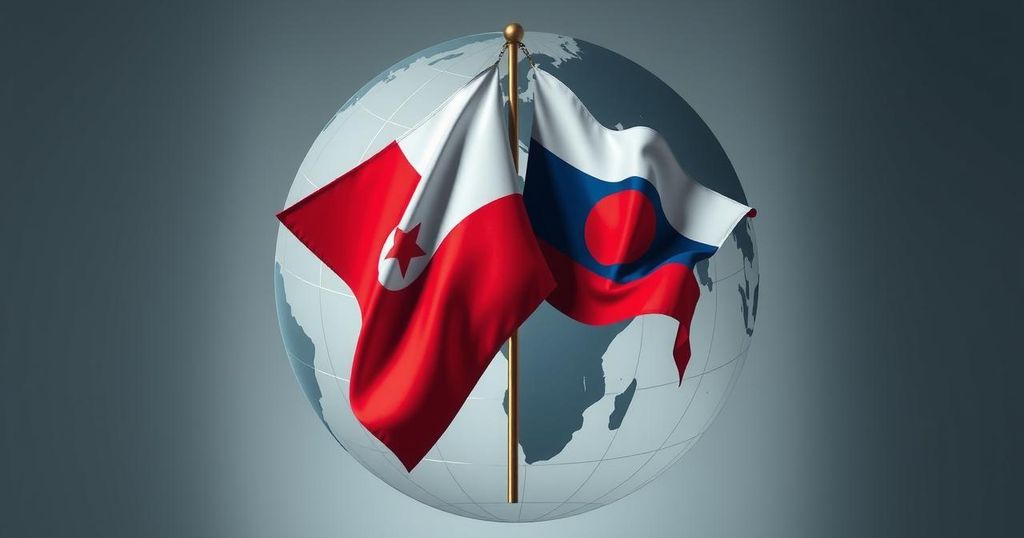Uruguay’s New Government Rejects Recognition of Maduro and González Urrutia
Yamandú Orsi’s administration in Uruguay has chosen not to recognize Nicolás Maduro or Edmundo González Urrutia in Venezuela, following controversial elections. Foreign Minister Mario Lubetkin confirmed this stance, highlighting diplomatic challenges. Despite acknowledging political control in Venezuela, Orsi maintains that recognition is not warranted due to undemocratic practices. The administration faces criticism for potentially legitimizing an authoritarian regime.
Under the recently inaugurated presidency of Yamandú Orsi, Uruguay has officially ceased to recognize both Nicolás Maduro and the Venezuelan opposition leader Edmundo González Urrutia, who claimed victory in the disputed July 28 elections beset by allegations of fraud. Foreign Minister Mario Lubetkin explicitly stated, “We do not recognize either Maduro or the president who claimed to have triumphed according to the minutes he showed on the Internet.” He referenced the possibility of diplomatic dialogues, citing the Oslo peace agreements as a precedent for negotiations related to Venezuela.
Previously, the outgoing Multicolor coalition government under Luis Lacalle Pou acknowledged González Urrutia as the president-elect, an assertion that shifted with the new administration. Lubetkin indicated that while Montevideo maintains its stance regarding the election outcome, diplomatic relations with Venezuela are practically nonexistent, noting, “What do we do with the thousands of Uruguayans who are in Venezuela? Who protects them?” However, he clarified that this stance does not imply the restoration of formal diplomatic connections.
Lubetkin described the situation in Venezuela as “ambiguous,” acknowledging the firm control exerted by the government over state and economic management, yet maintained that this control does not warrant recognition. When asked if Maduro qualifies as a dictator, Lubetkin reflected the views of President Orsi, emphasizing the lack of guarantees for a genuine electoral process. He remarked, “We do not recognize it, but we have to solve an objective problem we have, and we have to find the formulas.”
Criticism has emerged from opposition leaders concerning Orsi’s acceptance of the Venezuelan regime shortly after his election campaign, during which he labeled Maduro a dictator. Former Defense Minister Javier García emphasized this discrepancy, highlighting concerns over legitimizing the Bolivarian government despite the ongoing authoritarian practices in Venezuela.
In summary, Uruguay’s new government under President Yamandú Orsi has taken a firm position against the recognition of both Nicolás Maduro and Edmundo González Urrutia following the contentious Venezuelan elections. This reflects a consistent diplomatic stance despite concerns over the welfare of Uruguayans in Venezuela. The administration remains in a complex diplomatic situation, balancing recognition with practical issues surrounding its citizens abroad.
Original Source: en.mercopress.com




Post Comment